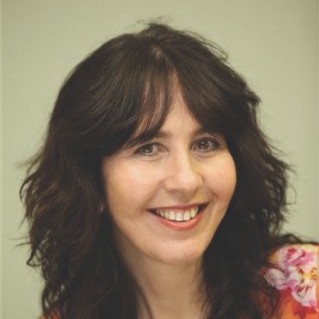
Voices

To be brave and bold and stand up for what is right
PETA KROST MAUNDER
It takes a strong, often maverick, individual to do this because support is generally given to those taking the popular path, not going against it.
South African-born Grant Gochin – who now lives in California – is that kind of man. He is an out-and-out activist, and believes in doing what is right for his people, no matter what it takes. In this case, his people are Litvak Jews. He is taking on the Lithuanian government, and not for the first time. Every time he does so, it is to ensure that it recognises what the people of Lithuania did to their fellow citizens who just happen to have been Jewish. He has been on this mission for about 20 years. (See Grant’s story on page 5.)
What is so astonishing is that, while most South African Jews hail from Lithuania (myself included), few of us know the horrific atrocities that were perpetrated by Lithuanian civilians against their fellow citizens who just happen to have been Jewish.
Around the world, people recognise the role the Germans, Austrians, and Poles played in the war, but relatively few know about Lithuania. And, as South African Jews, we certainly should. If Gochin has anything to do with it, we will. Also, because of him, the Lithuanian government and people will never forget what they did to us.
The reason I make this point about Gochin is that he holds his head up high, way above the proverbial parapet, and goes all out to do what he believes needs to be done according to his conscience. He gets harassed and harangued on social media, and has made many enemies, but he keeps on fighting the good fight.
“If we don’t stand for our families, they will be forgotten,” he says. It is as simple as that for him.
Not everyone has the courage of their convictions. Some people believe certain things, but don’t stand proudly behind them. No, they’d rather duck and dive to avoid being found out because – I would hazard a guess – they have a good idea that they are wrong.
Just this week, swastikas and Nazi slogans were found in the streets outside two shuls in Gauteng, in Pretoria and in Sydenham. Who was responsible? Your guess is as good as mine.
Nobody has owned up to it. It was done when nobody was around. We clearly weren’t meant to find out who did it, simply to be shocked and upset.
Defacing public property using Nazi slogans is ugly, anti-Semitic, and racist. But if you are going to be a racist, stand by your beliefs, don’t be a coward and hide behind the darkness and quiet. (See page 3.)
Give us the opportunity to respond.
Come out and face us, and tell us why you hanker after such atrocious people like the Nazis after what they did to the world.
Being an anti-Semite, to me, is totally baffling. To simply hate a nation of people because they were born to a certain religion seems crazy. But then, racism generally has that impact on me.
But why hide behind the shadow of darkness?
My sense is that these defacements are nothing more than a game to those who painted them. I am not sure I am convinced of the conviction with which they were written. It seems to me those involved were playing a nasty game, and somehow neo-Nazi slogans are de rigeur in their circle of friends.
I bet it gave them a huge kick to go home and tell their friends. Personally, I think they are cowardly troublemakers with too much time on their hands.
The time would be so much better spent researching what actually happened during World War II, and just how despicable the Nazis were. They certainly weren’t people worth emulating.
Speaking about people to emulate, I found it quite astonishing how just last week, hordes of people were boycotting Vodacom and making all sorts of threats because of its battle with its former employee, Nkosana Makate, who claimed to be behind “Please Call Me”.
People were picketing outside Vodacom and threatening “a backlash”. Even the government put pressure on Vodacom to pay this man, who was said to be the inventor.
Then, 702 speaks to Ari Kahn, only to discover that he was in fact behind this invention, not Makate. So very confusing, not least of all because Makate won a long and drawn-out case against Vodacom.
We discovered that Kahn is indeed a man to emulate. (See page 4.) Isn’t it always so inspiring to find out what people in our community are capable of and do? Kahn, too, was watching the situation in regard to “Please Call Me” and Vodacom. He could have kept his mouth shut and the problem might have escalated, but he didn’t.
With integrity intact, he let South Africa know what really happened. Kol hakavod to these brave people!
Shabbat Shalom!




